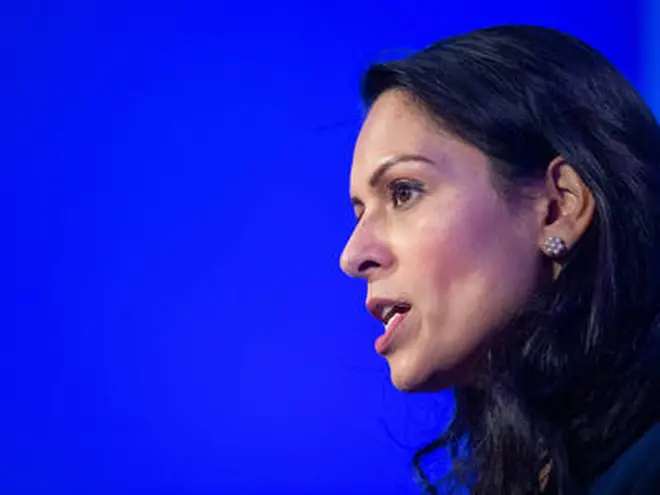
Henry Riley 3pm - 6pm
29 August 2020, 09:30 | Updated: 7 June 2023, 08:56

The Home Secretary has lashed out at the organisers of illegal raves, warning them they are "not above the law".
Writing in The Daily Telegraph, Priti Patel said the Metropolitan Police have responded to more than 1,000 unlicensed music events since June, calling their prevalence amid the coronavirus pandemic "unacceptable".
Addressing those thinking of organising such events, Ms Patel wrote: "It is critical that you consider the potential impact of these events, otherwise we risk undoing all the hard work the majority have done to stop the spread of this deadly virus.
Read more: Local lockdown restrictions eased in Lancashire, Greater Manchester, and West Yorkshire
"I urge you to seriously consider the risks you're creating for everyone in attendance, as well as the wider community."
The Home Secretary also defended new legislation aimed at deterring illegal music events.
Planning a big party this weekend?
— Birmingham Police (@brumpolice) August 28, 2020
💷 Starting today, organisers of gatherings of more than 30 people can be fined up to £10,000.
⛔ If you go to a gathering like this, you can be fined £100. That'll double every time you do it again, up to a maximum of £3,200. pic.twitter.com/rPUM2XbzWd
Under the new measures, which came into force on Friday, organisers of illegal raves will be hit with £10,000 fines.
Meanwhile, people not wearing masks and participants in unlawful gatherings can be fined starting at £100, doubling for each repeat offence up to a maximum of £3,200.
Ms Patel said the legislation represents a crackdown on "the most serious breaches of social distancing restrictions".
She added: "We will not allow this breathtakingly selfish behaviour from a senseless minority to jeopardise the progress we have made together."
Her comments come after Metropolitan Police Federation chairman Ken Marsh said the legislation will mean "absolutely nothing" for enforcement in London.
"It could be good for areas outside London, but it means absolutely nothing to us here," he said.
Listen & subscribe: Global Player | Apple Podcasts | Google Podcasts | Spotify
"People just set up a music box in the middle of the street and say 'it's not mine', it's utter nonsense.
"Raves are completely different to an unlicensed music event, which are a very difficult situation for my colleagues, who are abused and harassed and show amazing bravery.
"We need clearer legislation ... we need to be more forceful, clearing the area immediately, close the area down, the Government need more forceful wording around groups of people gathering."
Andy Rhodes, Chief Constable of Lancashire Constabulary, said a lot of good work was being done by "sensible" organisers to get around the disappointment of event cancellations, but urged people not to risk certain "freedoms" that were starting to return.
"Given it's the bank holiday weekend, what we're saying to people is be sensible, respect the work that some of the people have put into trying to arrange events sensibly, if they're online et cetera," he told BBC Breakfast.
"Try and get the best out of those, but do it within the law and do it safely, without risking creating a spike in infections in your local community, because we have seen across the North West just how damaging that can be to the economy, to vulnerable people.
"It takes away some of those freedoms that we're starting to get back, so our message is enjoy yourself but do it sensibly and don't go anywhere near anyone who's trying to organise events that are illegal."
Mr Rhodes said varying guidelines were "inevitably" confusing but that uncertainty was becoming an "excuse" for some rule-breakers.
"There's a world of difference between good people who are doing their best to enjoy themselves and they're a bit confused, and there are people that are clearly just ignoring the normal rules that the rest of us are trying to abide by," he said.
"Being confused is becoming a bit of an excuse for some people at the moment.
"Some of the guidance is inevitably confusing because it changes and it's very targeted to the infection rate and so we're trying to be proportionate with what we can and can't do."